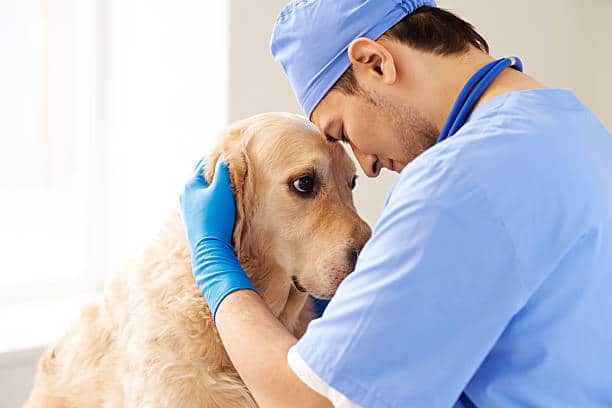Becoming a veterinarian is a hard but rewarding career. To become a qualified veterinarian, you need to study a lot and have hands-on experience. Picking the right vet school is very important because it can greatly impact your future career as a vet. The school’s education quality, clinical training, and reputation are all factors that can impact your future in the field of Veterinary studies.
In this article, we will be discussing the top vet programs in Texas, according to our criteria of accreditation, curriculum, faculty and research, graduation and job placement rates, clinical experience opportunities, student-to-faculty ratio, and reputation.
One of the best program to embark on when pursuing a career as vet in the University is the DVM Program. DVM stands for “Doctor of Veterinary Medicine”, which is a professional doctoral degree program in the field of veterinary medicine. Graduates with a DVM degree are licensed to practice veterinary medicine and provide medical care for animals.
As a DVM (Doctor of Veterinary Medicine), you will have the expertise and qualifications to diagnose and treat medical conditions in animals. Pursuing this professional doctoral degree program will equip you with a comprehensive understanding of veterinary medicine and its various branches, allowing you to provide top-notch medical care to animals
Upon graduation, you will be licensed to practice and will have the ability to make a real impact on the health and well-being of animals. So, if you have a passion for animals and want to make a difference in their lives, a DVM degree may be the perfect fit for you.
Finding a reputable veterinary school in Texas is important for those aspiring to become a DVM (Doctor of Veterinary Medicine) for several reasons, we have mapped a criteria in choosing the best Vet Schools in Texas for DVM Program.
Access to Quality Education: Texas is home to several reputable schools that offer comprehensive and high-quality education programs, preparing you to become a competent and successful veterinarian.
Opportunities for Hands-on Experience: Reputable schools in Texas have well-equipped clinical facilities, providing you with ample opportunities to gain hands-on experience in treating animals and developing your skills.
Strong Networking Potential: Attending a reputable veterinary school in Texas can help you build a strong network of professional contacts, which can be valuable in your future career.
Accreditation: All of the schools on our list are accredited by the American Veterinary Medical Association (AVMA), which is the governing body for veterinary medicine in the US.
Curriculum and Program Offerings: We evaluated the schools based on their curriculum, program offerings, and any specialized tracks or areas of focus.
Faculty and Research Opportunities: We considered the qualifications and experience of the faculty, as well as the research opportunities available to students.
Graduation and Job Placement Rates: We looked at the graduation rates and job placement statistics for each school to gauge the success of their graduates.
Clinical Experience Opportunities: We evaluated the schools based on the clinical experience opportunities available to students, including externship and internship programs.
Student-to-Faculty Ratio: We considered the student-to-faculty ratio of each school, as a lower ratio can indicate more individualized attention and support for students.
Reputation and Prestige: We took into account the reputation and prestige of each school, as this can impact future job opportunities and career prospects.
Best Vet Schools in Texas For DVM Program;
1. Texas A&M University College of Veterinary Medicine & Biomedical Science:
Texas A&M University School is a top higher institution in Texas located in College Station, Texas. The school was founded in 1916 and is one of only 31 colleges or schools of veterinary medicine in the United States and Canada.
The Texas A&M University School of Veterinary Medicine & Biomedical Sciences offers a DVM Program on veterinary studies. Texas A&M University is ranked as the number 10 in the best veterinary school in the world, and also occupies the number 4 in the United States, and #1 in Texas.
Program details and specialties:
The DVM Professional Program at the Texas A&M is one of the oldest and most prestigious programs
of its kind in the United States. As stated above, to become a veterinarian, you need to be dedicated and willing to study the program. Veterinary students must meet high standards of ethics and academic performance.
The DVM program offered by Texas A&M University is a four-year program with three years of classroom and laboratory instruction and a final year of clinical rotations, mostly in the Veterinary Medical Teaching Hospital (VMTH). The program was specially designed to ensure that future veterinarians acquired a solid foundation in disease recognition and clinical competency
Admissions requirements and tuition:
To be eligible to study Doctor of Veterinary Medicine in Texas A&M University, you must have;
- GPA of 2.90 and above
- Must have Animal experience which includes caring for and handling animals in a kennel or animal shelter.
- Must have over 100 hours veterinary experience in order to qualify for an interview.
- Must be a resident of Texas or United States (this means the Program is not for international students.
The tuition fee for this program us $53,984. If you interested in the program, visit the official website for more information – Texas A&M University DVM Program.
2. Texas Tech University Health Sciences Center, School of Veterinary Medicine
Texas Tech University is a public research university in Lubbock, Texas. The school was founded in 1923 and is one of the two schools offering DVM Programs in Texas. The Texas Tech University School of Veterinary Medicine offers a DVM Program on veterinary studies. The School is ranked #78 in best universities for Veterinary Medicine.
Program details and specialties:
The Texas Tech University School of Veterinary Medicine DVM program is one of the best and is well thought. The DVM program is an outcome- and competency-based, integrated, core-elective program that serves multiple learning styles and engages community-based learning in the teaching of veterinary medicine.
The duration of the program is four years worth students spending the first three years of the program on the Amarillo Campus and at Mariposa Station where they will gain valuable skills, knowledge and competencies needed to succeed in their clinical year. The fourth year will be for clinical experience which is at a community-based Clinical Learning Network (CLN) located primarily in Texas.
Admissions requirements and tuition
To be eligible to study Doctor of Veterinary Medicine in Texas Tech University, you must have;
- Minimum overall 2.9 GPA or higher in all coursework;
- Minimum 2.9 science GPA or higher.
- Applicants must be residents of Texas or New Mexico
- Have Animal Experience
The tuition for this program is
$41,790 for in-state and $52,590 out-state. If you interested in the program, visit the official website for more information – Texas Tech University DVM Program
Gaining Experience With Animals Is Very Crucial For DVM Program;
Adequate knowledge and hands-on experience in working with animals is a crucial aspect for aspiring veterinarians to achieve success in the field. A comprehensive preparation comprises of both formal education and practical exposure to handling and interacting with animals
The College of Veterinary Medicine expects applicants to be familiar with animals and animal behavior, while a background in general agriculture may prove beneficial for those interested in pursuing veterinary medicine for farm animals. Aspiring applicants can obtain the required experience by enrolling in courses that offer animal exposure or participating in practical animal-related activities in the private sector.
Requirements To Obtain A License in Texas:
Before You Apply for a License, Keep The Below In Consideration:
Individuals seeking to obtain a veterinary license in Texas should review the following resources for details on eligibility criteria, application procedures, and the necessary documentation and fees prior to submission.
To be eligible for a license, candidates must hold a degree from a college of veterinary medicine accredited by the American Veterinary Medical Association (AVMA) or possess a certificate of completion from the Educational Commission for Foreign Veterinary Graduates (ECFVG) or the Program for the Assessment of Veterinary Education Equivalence (PAVE).
Before being eligible to sit for the state licensing examination, applicants must have successfully completed both the National Board Examination (NBE) and either the Clinical Competency Test (CCT) or the North American Veterinary Licensing Examination (NAVLE).
How much is a Texas veterinary license?
According to information found on the official Texas Government page, the
The fee of Veterinary license is $195.00 according to information found on the official Texas Government page (See Full List)
Reference: https://www.veterinary.texas.gov/sbe.php
Frequently Asked Questions
What is required to become a veterinarian in Texas?
After completing your DVM, you will need a medical license before you can practice as a veterinarian. You cannot practice veterinary medicine in texas without a license hence you must earn a Texas veterinary medical license by taking and passing the State Board Examination.
How long does it take to become a DVM in Texas?
It takes between 6 and 9 years to complete the required undergrad requirements plus vet school needed to finally be able to earn your veterinary license and don the white coat.
What are the two vet schools in Texas?
There are only two veterinary medicine schools in Texas. They are the Texas A&M University at College Station and Texas Tech University at Amarillo. Aspiring veterinary students must select a specific major from the available options at the university they are enrolled in, in order to prepare for admission to a professional veterinary medical program.
Is getting a DVM worth it?
Most veterinary earns well and Bureau of Labor Statistics predicts a 17% growth in employment opportunities for veterinarians over the next decade, providing good job security for the profession. In 2020, the median salary for veterinarians was approximately $100,000, offering a decent remuneration for the field.
How much do small animal vets make in Texas?
Small animal vets are veterinarian that handles smaller animals and according to research,
the average Small Animal Veterinarian salary in Texas is $89,357 as of December 27, 2022. However, the range typically falls between $73,855 and $107,522.
Large Animal Vets on the other hand earns as high as $77,780 and as lows as $15,294 according to ZipRecruiter.
Conclusion:
In this article, we have discussed the top vet schools in Texas for DVM Programs, where we discovered that only two universities offers a Doctor of Veterinary Medicine programs in the State. Texas A&M University College of Veterinary Medicine & Biomedical Sciences and Texas Tech University Health Sciences Center, School of Veterinary Medicine are the two schools currently offering DVM Programs.
Also, if you don’t reside in Texas and live in other parts of the United States, checkout our post on: Top 10 Best Vet Schools in the US.
Related Posts:
Best Meteorology Schools In Texas | Top 5.
2023 Top 60 Best Flight Schools In Texas (Austin, Houston, Dallas Private Schools).

